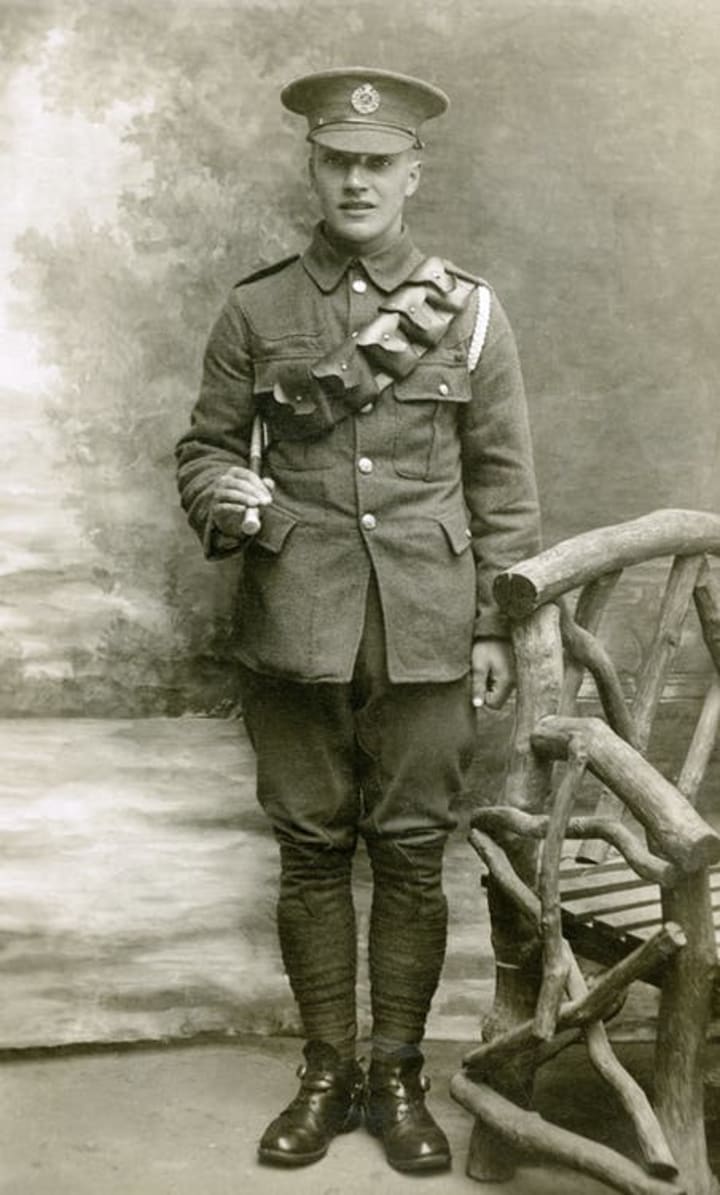
In 1800, Napoleon's army moved to Milan, Italy, where it fought a fierce battle against the long-held Austrian army.
On the battlefield, there was a little soldier who always fought alone.
People around him did not seem to want to be with him, but this did not affect his courage and wit. This soldier, Henry Bell, who was only eighteen years old, was kept off by his ugliness, and by his strange character, which made him talk to himself for no reason.
When he joined the army, people asked him where he was from. But he said, "I come from hell." That's why they call him the devil.
There was a soldier who was his worst friend, and they almost met each other, and even on the battlefield they kept away from each other for fear of revenge.
The battle was extremely violent. As he climbed out of the bunker, he heard a groan nearby and turned to see his enemy.
Almost instantaneously he made the decision to carry the wounded man on his back and retreat quickly to the rear. He threw himself on his back and asked, "Aren't you the devil? We have enemies, you still save me?" Without looking back, he said, "All that come out of hell are not devils!"
From 1806 to 1814, he travelled with Napoleon throughout Europe and became an officer in charge of logistics.
In the course of the retreat from Moscow, where the army had suffered unprecedented defeats, he passed one day by a small village, so clear that there was no sign of war or shadow, and the people watched the troops as they passed.

He seemed at once to have found his home in his heart, and he left the rest of the group, and looked at the little Russian village in ecstasy.
Suddenly, someone said in his ear, "Hey, you're going to miss the line!" He understood the sweet Russian.
Looking back, he saw a young girl smiling at him. He also smiled and began to talk to the girl.
Two strangers, meeting in this situation, seemed to have known each other for a long time, discussing war and peace, dreaming of beauty and hope.
I don't know how long after, the girl urged him: "If you don't go, really can't catch up!" Then he got up, took a few steps, and looked back.
"Don't you hate us for coming to fight in your country?"
The girl laughed, "What does war have to do with personal hatred?"
The girl asked, "Where are you going?"
He smiled back and said, "To Heaven!"
And deeply stare at the girl for a while, then stride away, out of the far, look back, the girl's figure is still standing in the small village like a fairy tale.
The scene was followed by several dreams, which made him feel that no place could be farther than his dream.
Later, Henry Bell settled in Milan, Italy, where he wrote and lived. Although he had fallen in love many times, the deep eyes of the Russian girl always shone in front of him when he returned to his dreams at midnight.
As a result, each of his love affairs could not last long. People thought his character was questionable, and based on his appearance, he was called "the Butcher of Italy".
He began to publish in 1817, but it was not well received, even hated. In 1832, the darkest and most difficult period of his life came. Poor and ill, he returned to his former loneliness and loneliness.
Although he had a pen, the novels he wrote, especially the one he devoted countless efforts to, were mercilessly criticized by the critics.
But he did not give up hope, he knew his work will always be appreciated, so he wrote on the back of the book: "To the happy few!" And he believed it would be understood and enjoyed by all after 1880.
In those 10 years of hard life, what supported him was writing and hope, and what warmed him was the soft corner of my heart, the Pure Russian girl who was always like water.
He died ill in 1842, and only three people attended his funeral.
Time proved his prediction right. His book, which became popular all over the world after 1880, is still listed as a masterpiece.
Yes, the book was The Red and the Black, and the pen name of his published work was Stendhal. Later, in his manuscript of The Red and the Black, the following sentence was found written outside the book: "I have come from hell and am passing through earth on my way to heaven!"
Heaven is far away, and no matter how dark and heartless around, in his bright eyes, is always passing by the beautiful world!





Comments
There are no comments for this story
Be the first to respond and start the conversation.